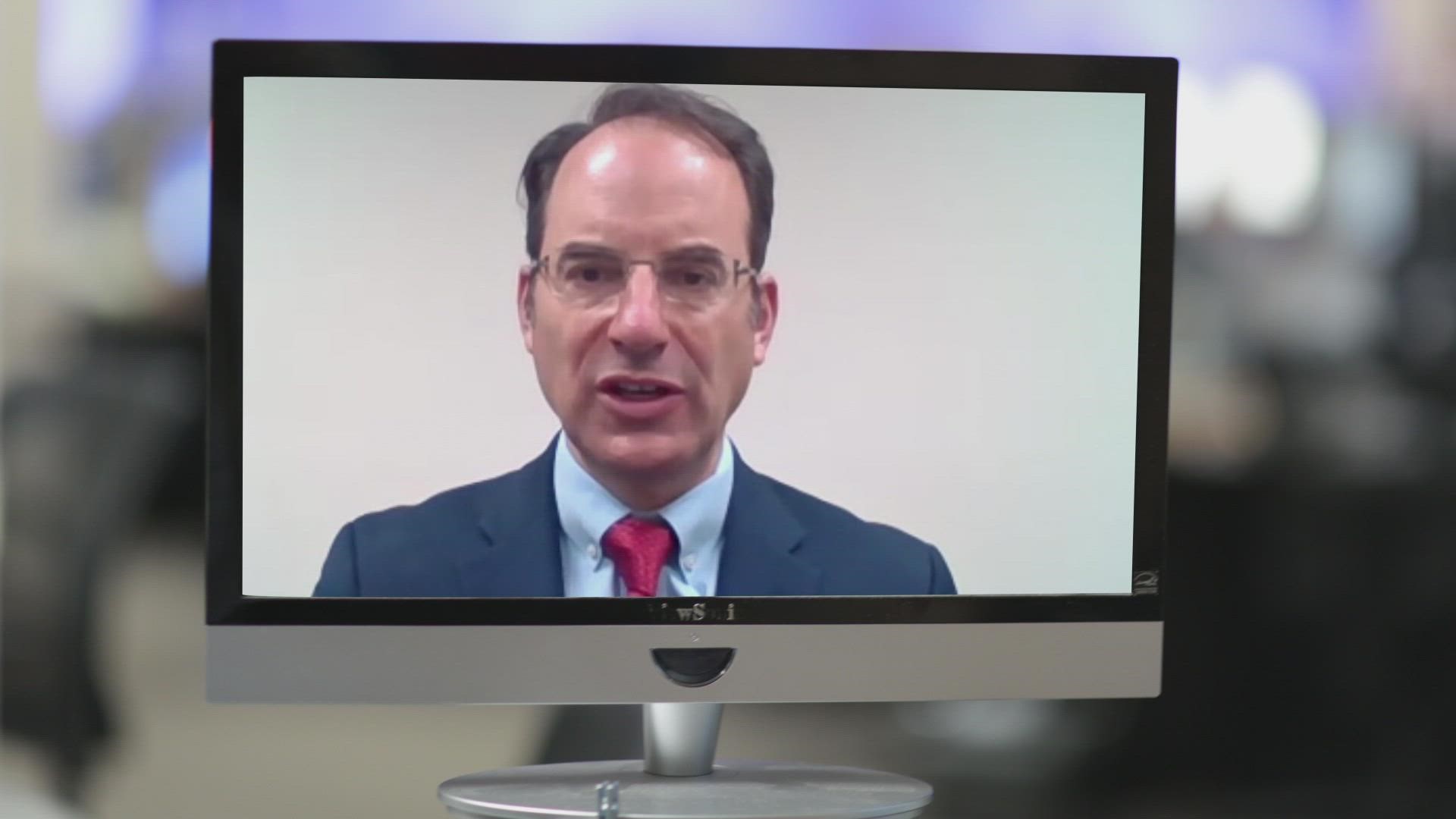WASHINGTON D.C., DC — Colorado Attorney General Phil Weiser discussed arguments made Monday before the U.S. Supreme Court on a case between a Colorado-based web designer and the LGBTQ+ community.
On Monday, the Supreme Court heard oral arguments in the case of web designer Lorie Smith, who's based out of Denver. Smith offers graphic and website design services and wants to expand to wedding website services, but she said her religious beliefs would lead her to decline any request from a same-sex couple to design a wedding website.
Smith also wants to post a statement on her website about her beliefs, but that would run afoul of a Colorado anti-discrimination law. Smith had argued the law violates her free speech and religious rights.
The Supreme Court said in taking the case, however, that it would look only at the free speech issue. It said it would decide whether a law that requires an artist to speak or stay silent violates the free speech clause of the First Amendment.
"The basic idea is, if you open your doors to the public, you have to accommodate all comers," Weiser said on Monday after oral arguments concluded. "You can't deny someone access to a product or service based on who they are."
Wieser said Colorado has a number of protected classifications including race, gender, gender identity, sexual orientation and religion.
"In this case, someone would be denied access [...] to a wedding website because they are a same-sex couple," Weiser said. "As this case made clear, if you have a categorical exemption and you say the same exact wedding website will be sold for an opposite-sex couple, but then it won't be sold to a same-sex couple, what you've done is deprived someone, based on who they are, access to the marketplace."
Weiser said the deprivation would be in the form of an exemption that would be created "because of a so-called expressive interest."
"This expressive interest would not be limited based on religion," he said. "It would be anyone's moral objection."
Weiser said their argument focused on a case involving law schools, FAIR v. Rumsfeld.
"There is a requirement that law schools had to open their doors and allow the military to recruit, just like any other employer could be going on campus," Weiser said. "The selective exclusion of the military [...] was said to be problematic and was not justified on expressive interest. We've asked for that principle to apply here."
Weiser said a final decision isn't expected until June.
> Watch AG Weiser's comments in the video player below:
In a 2-1 ruling last year, the Denver-based 10th U.S. Circuit Court of Appeals denied Smith’s attempt to overturn a lower court ruling throwing out her legal challenge. The panel said Colorado had a compelling interest in protecting the “dignity interests” of members of marginalized groups through its law, the Colorado Anti-Discrimination Act.
The law, which prohibits discrimination on the basis of sexual orientation, is the same one at issue in the case of Colorado baker Jack Phillips that was decided in 2018 by the U.S. Supreme Court.
The high court said at the time that the Colorado Civil Rights Commission had acted with anti-religious bias against Phillips after he refused to bake a cake for two men who were getting married. But it did not rule on the larger issue of whether a business can invoke religious objections to refuse service to LGBTQ+ people.
Both Smith and Phillips were represented by the Arizona-based Alliance Defending Freedom.
The Associated Press contributed to this report.
SUGGESTED VIDEOS: Latest from 9NEWS
9NEWS+
9NEWS+ has multiple live daily shows including 9NEWS Mornings, Next with Kyle Clark and 9NEWS+ Daily, an original streaming program. 9NEWS+ is where you can watch live breaking news, weather updates, and press conferences. You can also replay recent newscasts and find videos on demand of our top stories, local politics, investigations and Colorado specific features.
To download 9NEWS+ on Roku search for KUSA.
To download 9NEWS+ on Fire TV search for 9NEWS.

